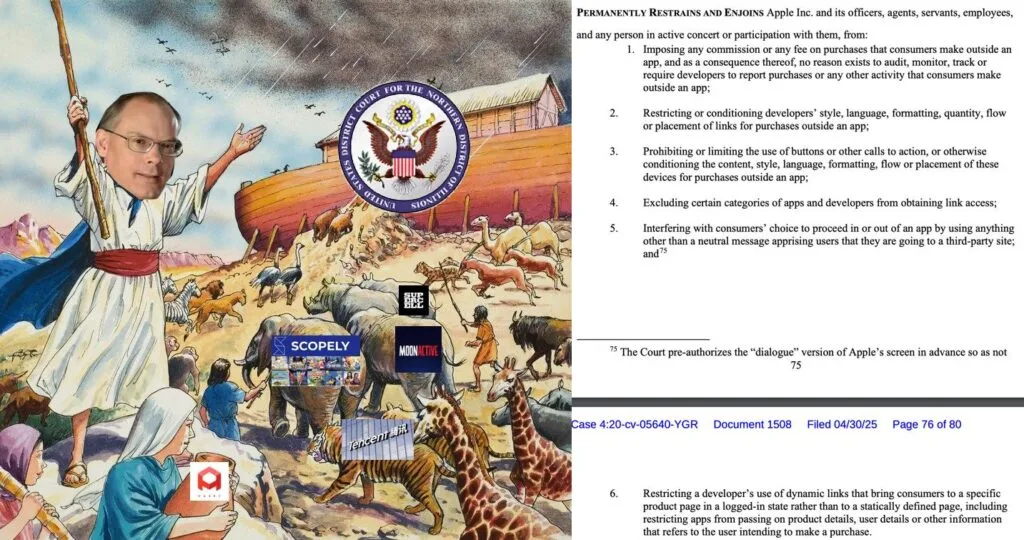Effective Immediately: Epic Achieves Mobile Webstore Liberation

Developers: you should ship updates to your in-app webstore UX TODAY: side-by-side pricing, knocking down scare screens, and an all-out webstore offensive the likes of which Stash and Xsolla have never seen.
Tim Sweeney’s vendetta and suit against Apple’s alleged antitrust violations have dragged on for four years. After the 2021 ruling and failed appeals, the issue was largely closed: Epic lost on most accounts but won in reducing anti-steering provisions, specifically Apple’s refusal to allow developers to link to any URL containing a non-IAP payment method. These bystentine regulations forced experiences like Formula 1 to split into a standard app, which occasionally links to web content, and a TV app where users may IAP to buy a season subscription, and no web links. The issue, of course, is that the F1 website offers non-IAP subscriptions, which reduces Apple’s revenue.
Judge Gonzales Rogers’ original injunction ruling stipulated that Apple must allow apps to provide users with external links to pay developers directly for services. Just as necessary, developers could use the email addresses acquired in the app to communicate with users about webstore payment offerings. AFK Journey was one of the first major titles to take advantage of this, using WhatsApp numbers from sign-up to send users web offers via text.
Apple’s response to the injunction allowing webstore link outs was an “entitlement application” that forced apps with external links to webstores to pay 27% revenue share instead of the standard 30%—gee whiz. Oh, and it’s worse. Apple claimed it was entitled to ANY revenue a user makes on a webstore seven days after tapping the link. If a user taps the webstore in-game on Monday and then accesses the store via a desktop browser on Friday, Apple claims they’re entitled to 30% of any revenue the user generates. Yes, you read that right. Apple used the ruling to advance its position, not inhibit it.
The drama doesn’t stop there: as part of the entitlement program, Apple openly discussed amping up a “scare” screen so users would be deterred from proceeding to webstores. Court documents revealed how UX designers discussed design particulars: “if we want to ‘scare’ users a bit, I like the addition of ‘out’ because it raises questions and hesitancy haha. out? out where? omg what do i do?”
Apple executives also lied under oath about the intent of specific policies, which was backed up by internal Apple meeting notes and emails. The judge has recommended that the case be examined for criminal proceedings.
The court’s response to Apple’s shenanigans? “This Court will not play ‘whack-a-mole,’ nor will it tolerate further delay.” The new ruling, in the attached screenshot, is effective immediately.